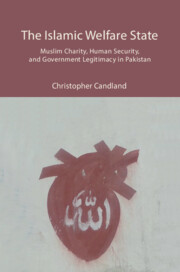Book contents
- Frontmatter
- Dedication
- Contents
- List of Illustrations
- Preface
- Note on Translations and Transliterations
- List of Abbreviations
- Part 1 Introduction
- Part 2 Piety and Public Goods
- Part 3 Pakistan
- Part 4 Charities
- Part 5 Religion, State, and Public Goods
- Afterword
- Acknowledgments
- Appendix: Charities Studied
- Glossary
- References
- Index
Afterword
Published online by Cambridge University Press: 30 April 2024
- Frontmatter
- Dedication
- Contents
- List of Illustrations
- Preface
- Note on Translations and Transliterations
- List of Abbreviations
- Part 1 Introduction
- Part 2 Piety and Public Goods
- Part 3 Pakistan
- Part 4 Charities
- Part 5 Religion, State, and Public Goods
- Afterword
- Acknowledgments
- Appendix: Charities Studied
- Glossary
- References
- Index
Summary
It was a source of pride to Pakistanis but not a surprise to many to read that a Pakistani-American walked into an embassy and anonymously donated US$30 million for victims of the February 2023 earthquake in Turkey. Since I began the study of Muslim charity in Pakistan, more than a decade ago, Pakistanis have continued to merit their well-earned reputation for philanthropy in Pakistan and globally. But one emergent phenomenon requires mention.
Provincial and national governments of Pakistan have greatly expanded social welfare programs since I conducted field research, between 2010 and 2020. Through emergency cash transfers, loans and scholarships, visits from health workers, coverage for in-patient care, vocational training, and other programs, governments of Pakistan have implemented programs for students, job seekers, and entrepreneurs, and have greatly increased access to emergency and basic medical attention. Government provision of basic social welfare—in education, employment, and health—at provincial and national levels have created new infrastructure government-funded, everyday human security in Pakistan. The Pakistan Tehreek-i-Insaf in Khyber Pakhtunkhwa and nationally greatly strengthened government social welfare programs. The Sehat Sahulat Program covers families with in-patient medical care. The Ehsaas Program provides cash transfers to millions of vulnerable people, directed toward the disabled, low-income or widowed women, orphaned children, students from low-income families, and other groups. It may be hoped that the establishment of government-funded social welfare programs before and the response of the government to and since the humanitarian and economic crises caused by the severe acute respiratory syndrome coronavirus 2 will have made Pakistan's current political and economic crisis somewhat less punishing to the poor. In June 2023, as this book goes to press, a conflict between the military of Pakistan, and its preoccupation with ‘national security,’ and the people of Pakistan, and their need for everyday human security, as has been witnessed before times of horrendous man-made humanitarian disasters in Pakistan, is threatening.
- Type
- Chapter
- Information
- The Islamic Welfare StateMuslim Charity, Human Security, and Government Legitimacy in Pakistan, pp. 272 - 273Publisher: Cambridge University PressPrint publication year: 2024

